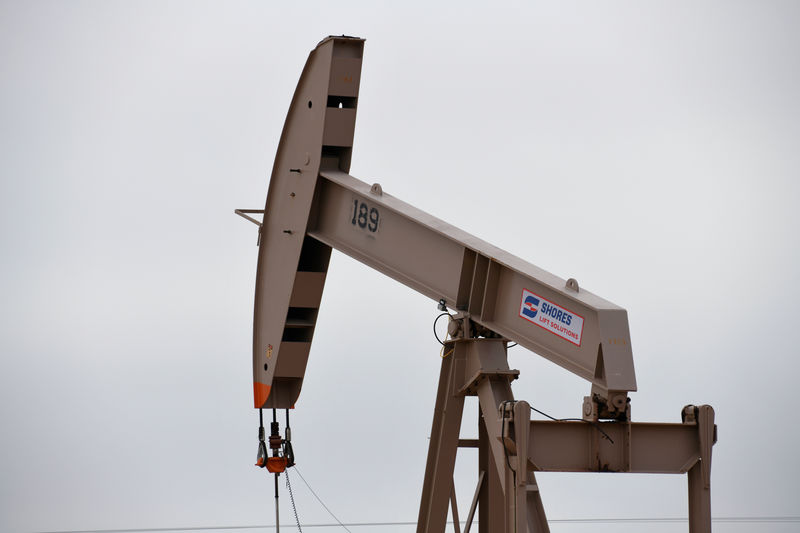TOKYO (Reuters) - Oil prices rose on Wednesday, with U.S. crude gaining 1% after an inventory report showed U.S. stockpiles fell more than expected, helping ease worries about economic growth from the Sino-U.S. trade war.
Brent crude was up by 41 cents, or 0.7%, at $59.92 a barrel by 0121 GMT. West Texas intermediate crude was up by 57 cents, or 1.0%, at $55.50 a barrel.
U.S. crude stockpiles fell sharply last week as imports dropped, plummeting by 11.1 million barrels, compared with expectations for a 2 million barrel draw, data from industry group, the American Petroleum Institute (API), showed.
The U.S. government's weekly report is due to be released Wednesday morning and if official numbers confirm the API data then it will be the biggest weekly decline in nine weeks.
"The mammoth crude inventory draw has, at least for the time being, put to rest those U.S. recessionary doom and gloom fears that have been hanging over oil markets like a dark cloud," said Stephen Innes, managing partner at Valour Markets.
Still, concerns about global growth amid the raging trade war between the United States and China are likely to cap gains.
U.S. President Donald Trump said on Monday that he believed China was sincere about wanting to reach a deal, while Chinese Vice Premier Liu He said China was willing to resolve the dispute through "calm" negotiations.
On Tuesday, however, concerns about trade resurfaced after China's foreign ministry that it had not heard of any recent telephone call between the United States and China on trade, and said it hopes Washington can stop its wrong actions and create conditions for talks.
Crude oil prices have fallen about 20% from 2019 highs reached in April, partly because of worries that the U.S.-China trade war is hurting the global economy, which could dent demand for oil.
China's Commerce Ministry last week said it would impose additional tariffs of 5% or 10% on 5,078 products originating from the United States, including crude oil, agricultural products and small aircraft.

In retaliation, Trump said he was ordering U.S. companies to look at ways to close operations in China and make products in the United States.